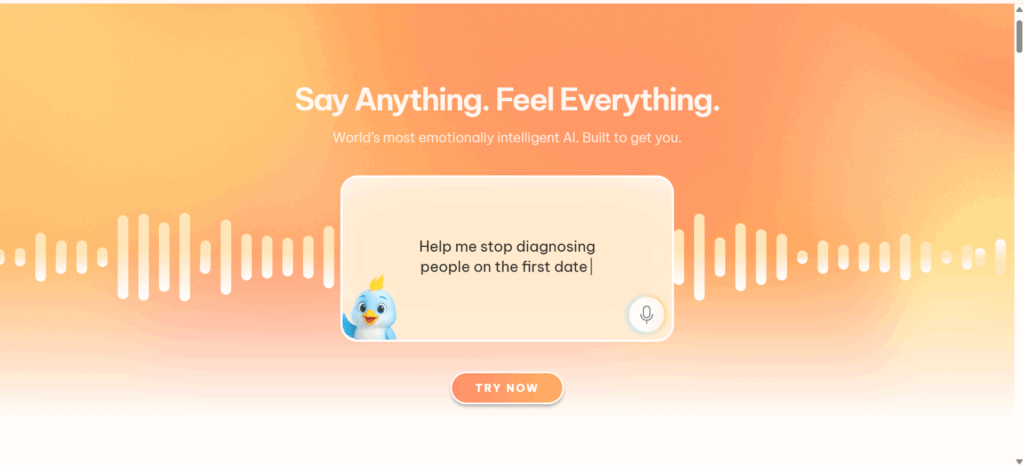Jenny Shao, a former Harvard resident physician, has launched Robyn, a digital companion app designed to support emotional reflection. The iOS-based app guides users through conversations that help them understand their thoughts and behaviors over time.
During her residency, Shao saw how isolation affected patients’ emotional and neurological health. These experiences shaped her decision to leave medicine and create Robyn. “As a physician, I have seen things go badly when tech companies try to replace your doctor. Robyn is and won’t ever be a clinical [replacement]. … You can think of Robyn as your emotionally intelligent partner,” Shao said.

The app’s onboarding process asks users about their goals, tone preferences, and emotional traits. Robyn then maintains memory across chats, recalling past topics and identifying recurring patterns. It helps users reflect on emotional traits such as attachment style and love language. Robyn is built to provide consistent, contextual support without replacing therapy or medical care.
Shao’s medical background and research in human memory informed the app’s design. Before launching Robyn, she worked in neurology under Nobel Laureate Eric Kandel, studying how memory processes affect behavior. That experience helped shape the system’s structure and focus on continuity in interaction.
Defining Its Role Among Emotional AI Apps
Robyn joins a growing list of digital companions and wellness tools, including Replika, Pi, Wysa, and Woebot. Each app uses different approaches to emotional engagement. Replika and Pi focus on conversational companionship, while Wysa and Woebot use cognitive behavioral frameworks to promote mental well-being.
Unlike these products, Robyn does not attempt to act as a friend or therapist. Its function is limited to emotional reflection and awareness. The app keeps a record of previous exchanges, allowing conversations to stay connected over time. This continuity creates a structured environment where users can revisit earlier discussions and track their progress.
The app’s safety system was developed to ensure that conversations stay within non-clinical boundaries. If a user mentions self-harm or distress, Robyn provides crisis hotline information or emergency service contacts. It also declines requests outside its defined scope, such as entertainment or factual queries unrelated to personal reflection.
Robyn’s model focuses on consistency, memory, and user safety. Each interaction is designed to reinforce emotional understanding while maintaining privacy. Data from conversations remains encrypted, and information is not used for advertising or shared with third parties.
Shao’s decision to focus on reflection rather than diagnosis separates Robyn from other wellness tools. It functions as a stable digital companion that helps users observe their emotions without offering treatment or therapy.
Funding, Structure, and Market Launch
Robyn has secured $5.5 million in seed funding, led by M13, with participation from Lars Rasmussen, Bill Tai, Ken Goldman, and Christian Szegedy. The company began with three team members and has expanded to ten.
The app operates on a subscription model at 19.99 dollars per month or 199 dollars per year. According to the company, the paid structure allows Robyn to remain ad-free and maintain data privacy standards.
Investor Lars Rasmussen said he was drawn to Robyn’s approach to emotional memory and its design rooted in medical understanding. M13 partner Latif Parecha said that the app’s framework includes protocols for escalation in case of crisis situations, with the aim of ensuring that users receive timely support when needed.
The company has tested Robyn with a closed group of users before its wider launch in the United States. The current release marks the beginning of its broader availability.
Robyn’s safety system is built around strict limits on content and scope. Conversations remain focused on self-awareness and emotional tracking. The app generates weekly insights summarizing topics and behavioral patterns, offering users a clear view of their engagement over time.
Robyn’s launch comes amid growing demand for digital tools that support mental wellness. Several existing companion and journaling apps have faced criticism for lacking safety mechanisms or encouraging overreliance. Robyn’s boundaries and medical grounding aim to avoid such issues by clearly defining its role.
The company describes Robyn as a structured digital companion that promotes understanding through reflection. Users can engage in daily or periodic conversations, revisit earlier exchanges, and observe emotional trends. All interactions remain confidential, and privacy is central to its design.










